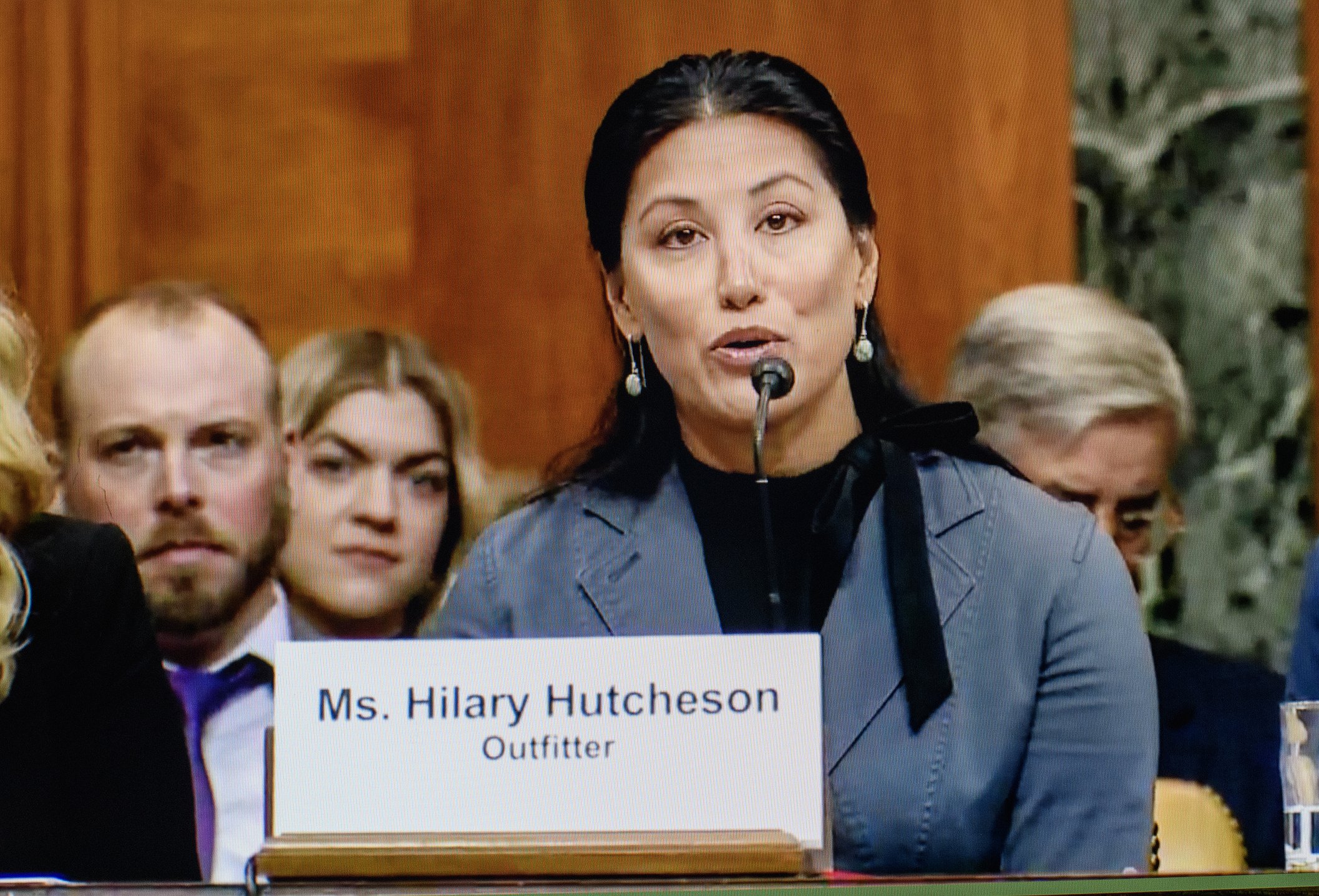Columbia Falls outfitter testifies on impacts of climate change to business
Columbia Falls outfitter and guide Hilary Hutcheson testified before the U.S. Senate Budget Committee last week on the effects of climate change to the outdoor industry.
Hutcheson is a longtime fly fishing guide in Northwest Montana and owns Lary’s Fly and Supply in Columbia Falls.
She is also the outfitter of record for Glacier Raft Co and Glacier Anglers in West Glacier which has 185 employees and 100 river guides.*
“My career is one of the 29,453 jobs directly supported by outdoor recreation in our state,” she said.
She noted that more than 700,000 people a year book a guided trip while in Montana. With water-based trips being the most popular and guided fishing trips bringing in about $80 million a year.
Yet that way of life is often threatened by climate change.
“Unfortunately our increasingly unstable river office environment marked by drastic temperature fluctuations, wildfires, floods, drought, wildlife stress and other disruptions warrants extra attention to guides’ physical and mental health,” she told the committee.
In short, guides have been seeking counseling more and more because of the stress from the industry. Many guides work rivers in the summers and ski resorts in the winter, but that way of life is threatened by climate change and the uncertain weather conditions that come with it.
She also noted that the regions’ waters are one of the few places to catch native westslope cutthroat trout and clients are also aware of the impacts of climate change when they visit here.
“Clients who fish with us are asking tough questions these days. They ask about our ‘new’ normals like rain on snow events that can scour trout spawning beds. They ask why we run out of water so early in the season. They ask why they’re seeing so many weakened hybrid trout,” she said, adding that they talk science to clients about how the warmer waters are more hospitable to the hybrid fish.
She also spoke to budgets.
“I think about budgets all the time. It’s becoming increasingly challenging to budget for the season. Will we have dangerously high water or historically low water? Should we not book guests in August when thick smoke from wildfires might keep us off the river again … how many client trip deposits will we have to refund for canceled vacations?” she said.
All of these things can come to a head in a typical summer as of late. Last summer for example, rivers to the south routinely had “hoot owl” restrictions, which restrict angling to the cooler morning hours as the water gets too warm.
Even the venerable Flathead River system, which typically stays colder than other rivers in Montana, had voluntary restrictions at the behest of Montana Fish, Wildlife and Parks. There have also been a parade of wildfires almost every summer. Last summer it was the Ridge Fire outside of Martin City and Hungry Horse that fouled skies with smoke for weeks on end.
She spoke of guides who left early simply because there wasn’t enough water to fish.
Hutcheson was joined by Olympic cross-country skier Gus Schumacher, and Theresa McKenney, director of sustainability and government affairs at NEMO Equipment. In addition, Joao Gomes of the Wharton School of Business testified as did Scott Walter of the Capital Research Center.
McKenney testified about record rains last summer in New Hampshire (where her company is located) and then not enough snow this summer. Schumacher testified on how climate change affects his sport, as some Midwestern states had almost no snow this winter.
But the hearing was also decidedly partisan. Gomes testified that Congress needs to curb spending first, or it won’t have money to address climate change.
Walter claimed some climate advocacy groups were raising “dark money” to support Democratic candidates.
The committee is chaired by Sheldon Whitehouse, a Democrat from Rhode Island. He argued that one of the ways to combat climate change and reduce the budget deficit would be through “carbon border adjustment” on countries that don’t use clean energy to manufacture goods.
He also said he believed that climate change here was obviously having tangible impacts.
“If you look at our national debt, about a third of it comes from emergencies. If we’d been better prepared, the national debt would be much less. These climate hearings have focused on a huge emergency bearing down on us. The fact that the climate emergency is one that Republicans and fossil fuel polluters would prefer not to talk about doesn’t make it any less real. Facts are facts; and physics is physics,” he said.
But Sen. John Kennedy, a Republican from Louisiana, noted in cross-examining Schumacher that it would cost trillions to fully address climate change.
The entire hearing is at: https://www.budget.senate.gov/hearings/recreation-at-risk-the-nature-of-climate-costs.
*This story has been corrected.




